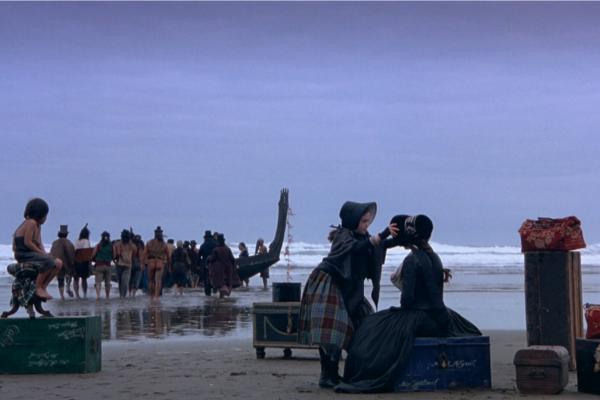THERE’S A bluish light on the beach in The Piano, Jane Campion’s 1993 film about a woman mute by trauma-induced choice, sold from Scotland into an unwanted marriage in New Zealand, who deepens the roots of her soul and expands her reach into the air and the people around her. The same light is in the misty forest where her confused patron and eventual lover lives; but in her husband’s home, it is dark.
I remembered The Piano as an unusual Victorian romance, but watching it recently, in a restored version that accentuates the exquisite strangeness of its images and ideas, opened a forgotten room in my mind. The Piano functions as a love story that could happen “here”—a character liberates herself from oppression, claims her space in the world, and learns to love herself. But it also deals with mythic reality. Love, hate, power, healing, purpose, Being itself. Things I had not noticed the first time.
It’s often this way when we watch films from the past—we remember who we were, which of course is only ever who we thought ourselves to be; we compare with who we think ourselves to be now. A dialogue ensues between the younger and older selves. A movie that we then experienced as a masterpiece now seems clichéd, or one we did not “get” the first time around now manifests as the film we’ve been waiting for all our lives. We weren’t ready before. Sometimes what we need most is to be reminded that the wonder we used to experience might be even more true than the skepticism that now burdens us.
Read the Full Article

